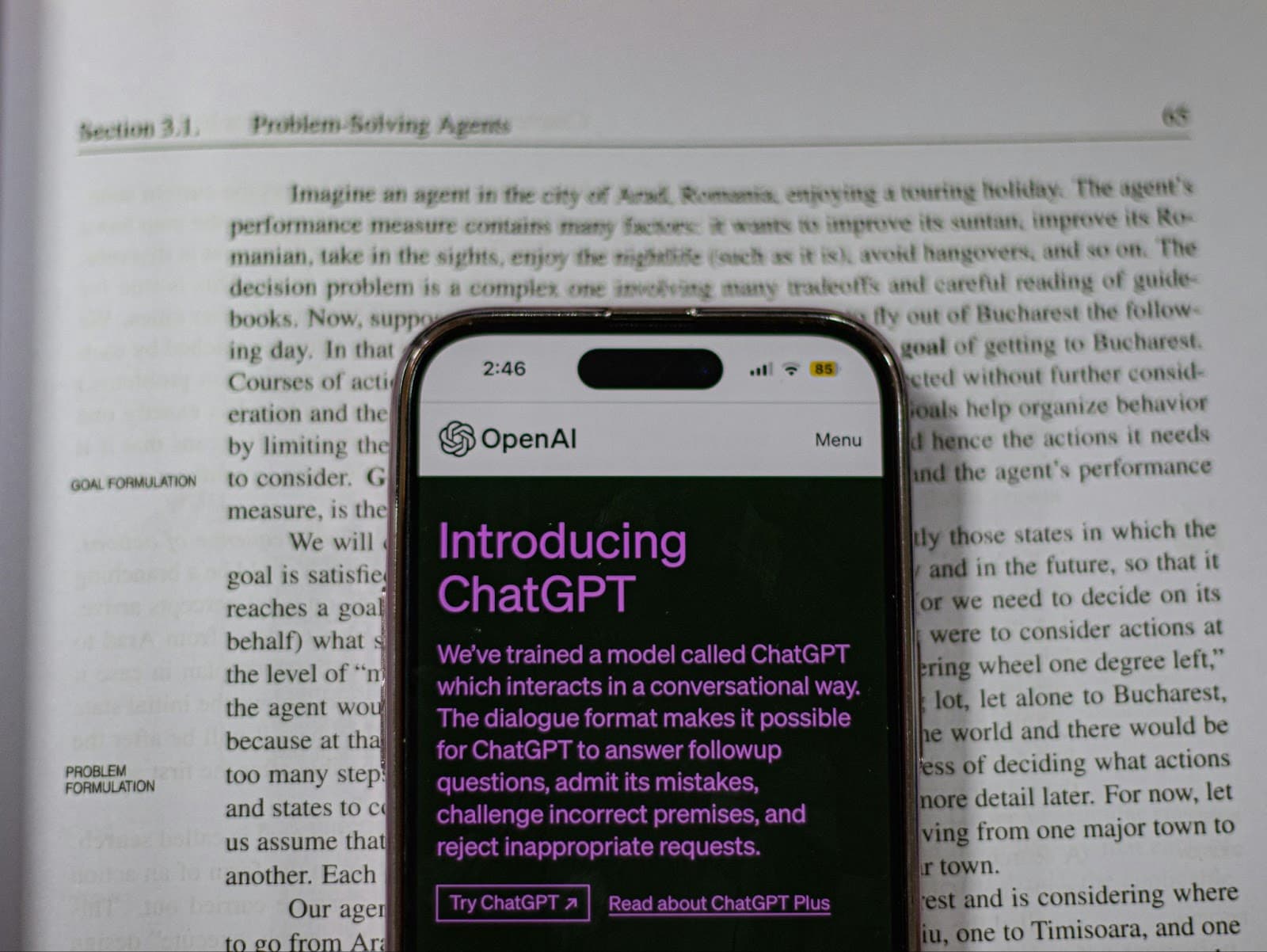The Impact of Artificial Intelligence on College Education in the USA
Artificial Intelligence (AI) has rapidly become an integral part of many industries, revolutionizing the way tasks are performed and decisions are made. In the realm of higher education, particularly in the USA, AI’s influence is becoming increasingly significant. From personalized learning experiences to administrative efficiencies, AI is reshaping college education. This article explores the multifaceted impact of AI on college education in the United States, examining both the opportunities and challenges it presents.
The Integration of AI in Teaching and Learning
AI technologies are being integrated into teaching and learning processes, providing personalized educational experiences that cater to individual student needs. AI-driven platforms can analyze student performance data to identify strengths and weaknesses, allowing for tailored instruction.
For example, AI-powered tutoring systems can provide additional practice and feedback on topics where a student is struggling. These systems use natural language processing to understand student queries and machine learning algorithms to provide relevant assistance. Adaptive learning platforms adjust the difficulty of questions in real-time based on student responses, ensuring that learners are neither bored nor overwhelmed.
Moreover, AI can facilitate collaborative learning by connecting students working on similar projects or facing comparable challenges. By analyzing data on student interactions, AI systems can form study groups or recommend peers who can help each other, fostering a more interactive and supportive learning environment.
Another significant development is the use of AI in content creation. AI can help generate quizzes, summarize lecture notes, and even create interactive simulations that enhance understanding of complex subjects. This not only enriches the learning material but also saves educators time in resource development.
Examples of AI Applications in College Education
| AI Application | Description | Impact |
| Adaptive Learning Platforms | Systems that adjust content based on student performance | Personalized learning, improved engagement |
| AI Tutors | Virtual assistants that provide feedback and support | Enhanced understanding, accessibility |
| Automated Grading Systems | Tools that grade assignments and provide feedback | Efficiency for instructors, timely feedback |
| Predictive Analytics | Analyzing data to predict student outcomes | Early intervention, improved retention |
| Chatbots for Student Support | Virtual assistants for administrative queries | Improved student services, 24/7 availability |
| Content Generation Tools | AI systems that create educational materials | Resource efficiency, diverse content |
| Virtual Reality Simulations | Immersive learning experiences powered by AI | Deeper understanding, engagement |
Administrative Efficiency and AI
Beyond the classroom, AI is streamlining administrative processes within colleges and universities. Chatbots, for instance, are being employed to handle routine inquiries about admissions, course registration, and campus events, freeing up staff to focus on more complex tasks. These AI-driven assistants can operate around the clock, providing instant responses and reducing wait times for students. Platforms like apuestassinlicencia.net exemplify how AI technology can offer continuous support, further enhancing administrative efficiency.
Moreover, AI can assist in enrollment management by analyzing application data to predict enrollment trends, helping institutions make informed decisions about resource allocation. Predictive analytics can forecast the number of students likely to enroll, graduate, or require additional support, enabling colleges to plan accordingly.
In financial operations, AI algorithms can detect fraudulent activities and ensure compliance with regulatory standards. They can also optimize budget allocations by identifying areas where resources are underutilized.
Enhancing Accessibility and Inclusivity
AI technologies are also playing a crucial role in making college education more accessible. For students with disabilities, AI-powered tools can provide accommodations such as speech-to-text transcription, audio descriptions for visual content, and personalized interfaces that adapt to individual needs.
Language translation tools powered by AI enable non-native English speakers to access course materials and participate more fully in class discussions. This promotes a more inclusive learning environment and can attract a more diverse student body.
Key Ethical Challenges of AI in Education
- Data Privacy: Ensuring that student data is collected and used responsibly, with consent and in compliance with regulations like FERPA (Family Educational Rights and Privacy Act).
- Algorithmic Bias: Preventing AI systems from reinforcing existing inequalities due to biased data sets or flawed algorithms. This includes addressing issues where AI might disadvantage certain groups of students.
- Transparency: Making AI decision-making processes understandable to users. Students and educators need to know how AI systems arrive at recommendations or decisions to build trust.
- Accountability: Determining who is responsible for AI-driven decisions, especially when errors occur. This includes establishing protocols for redress and correction.
- Impact on Employment: Considering how AI might affect jobs within academia, such as administrative staff or even teaching positions, and planning for workforce transitions.
The Role of Educators in an AI-Enhanced Environment
As AI takes on more roles within education, the role of educators is evolving. Teachers are transitioning from being the primary source of information to facilitators of learning experiences. They guide students in critical thinking, problem-solving, and applying knowledge in practical contexts.
Educators also play a vital role in overseeing AI systems to ensure they are functioning correctly and ethically. This includes monitoring AI-driven assessments for fairness and accuracy and interpreting data analytics to inform teaching strategies.

Strategies for Educators Adapting to AI Integration
- Professional Development: Engaging in ongoing training to understand and effectively use AI tools.
- Collaborative Planning: Working with AI specialists to develop curricula that integrate AI technologies.
- Ethical Oversight: Participating in discussions on ethical policies regarding AI use in education.
- Student Guidance: Teaching students about AI literacy, including understanding AI tools and critical evaluation of AI-generated information.
- Personalization: Using AI insights to personalize instruction while maintaining human connection and empathy.
The Future of AI in College Education
Looking forward, AI is poised to further transform higher education. Potential developments include more sophisticated virtual reality learning environments and AI-driven curriculum development that can adapt to evolving industry needs.
AI may also facilitate lifelong learning by providing platforms that support continuous education. As the job market evolves, these platforms can help individuals upskill or reskill, keeping pace with technological advancements.
Potential Future Developments
- Enhanced Virtual Reality (VR) Learning: Combining AI and VR for immersive educational experiences that simulate real-world scenarios.
- AI-Driven Curriculum Design: Curricula that evolve based on industry trends, job market demands, and emerging fields of study.
- Lifelong Learning Platforms: AI systems that support continuous education beyond college, providing personalized learning paths throughout one’s career.
- Global Collaboration: AI tools that connect students and educators worldwide, promoting cross-cultural exchanges and collaborative projects.
- Automated Research Assistance: AI aiding in literature reviews, data analysis, and even hypothesis generation, accelerating the pace of academic research.
Artificial Intelligence is significantly impacting college education in the USA by enhancing personalized learning, improving administrative efficiency, and offering new avenues for innovation in teaching and learning. The integration of AI has the potential to make education more accessible, engaging, and aligned with the needs of the modern world.
However, while the benefits are substantial, it is crucial to address ethical considerations to ensure that AI serves as a tool for equitable and effective education. Issues of data privacy, algorithmic bias, transparency, and accountability must be carefully managed. The human element remains indispensable; educators, administrators, and policymakers must work collaboratively to harness AI’s potential responsibly.
As AI continues to evolve, its integration into higher education will likely expand, shaping the future of learning in profound ways. Embracing this technology, while navigating its challenges, will be essential for institutions aiming to provide high-quality education in the 21st century.
Frequently Asked Questions
How is AI improving personalized learning in colleges?
AI improves personalized learning by analyzing individual student data to tailor educational content. Adaptive learning platforms adjust the difficulty and type of material based on a student’s performance, ensuring that each learner receives instruction that matches their needs. AI tutors can provide immediate feedback and support, addressing specific areas where a student may struggle.
What are the ethical concerns related to AI in education?
Ethical concerns include data privacy, as AI systems collect and analyze vast amounts of student information. There’s also the risk of algorithmic bias, where AI might reinforce existing social inequalities due to biased data sets. Transparency in how AI makes decisions is critical, as is accountability when errors occur. Ensuring that AI enhances rather than detracts from educational equity is a significant challenge.
Will AI replace human educators in the future?
While AI can automate certain tasks and provide support, it is unlikely to replace human educators entirely. The role of teachers is evolving to incorporate AI as a tool to enhance learning. Human interaction, mentorship, and the ability to inspire students remain essential components of education that AI cannot replicate. Educators bring critical thinking, ethical considerations, and emotional intelligence to the learning process, which are vital for student development.
